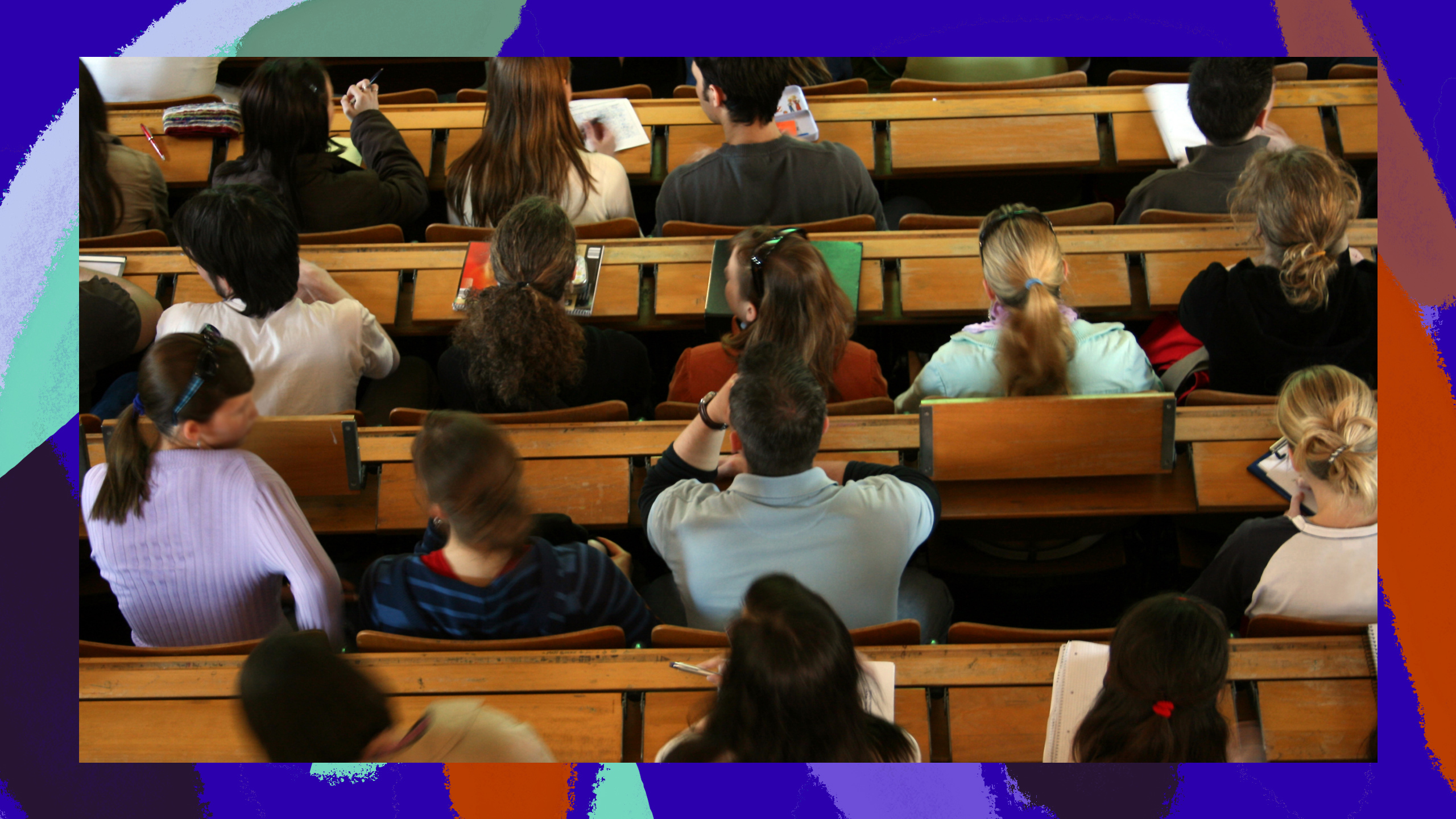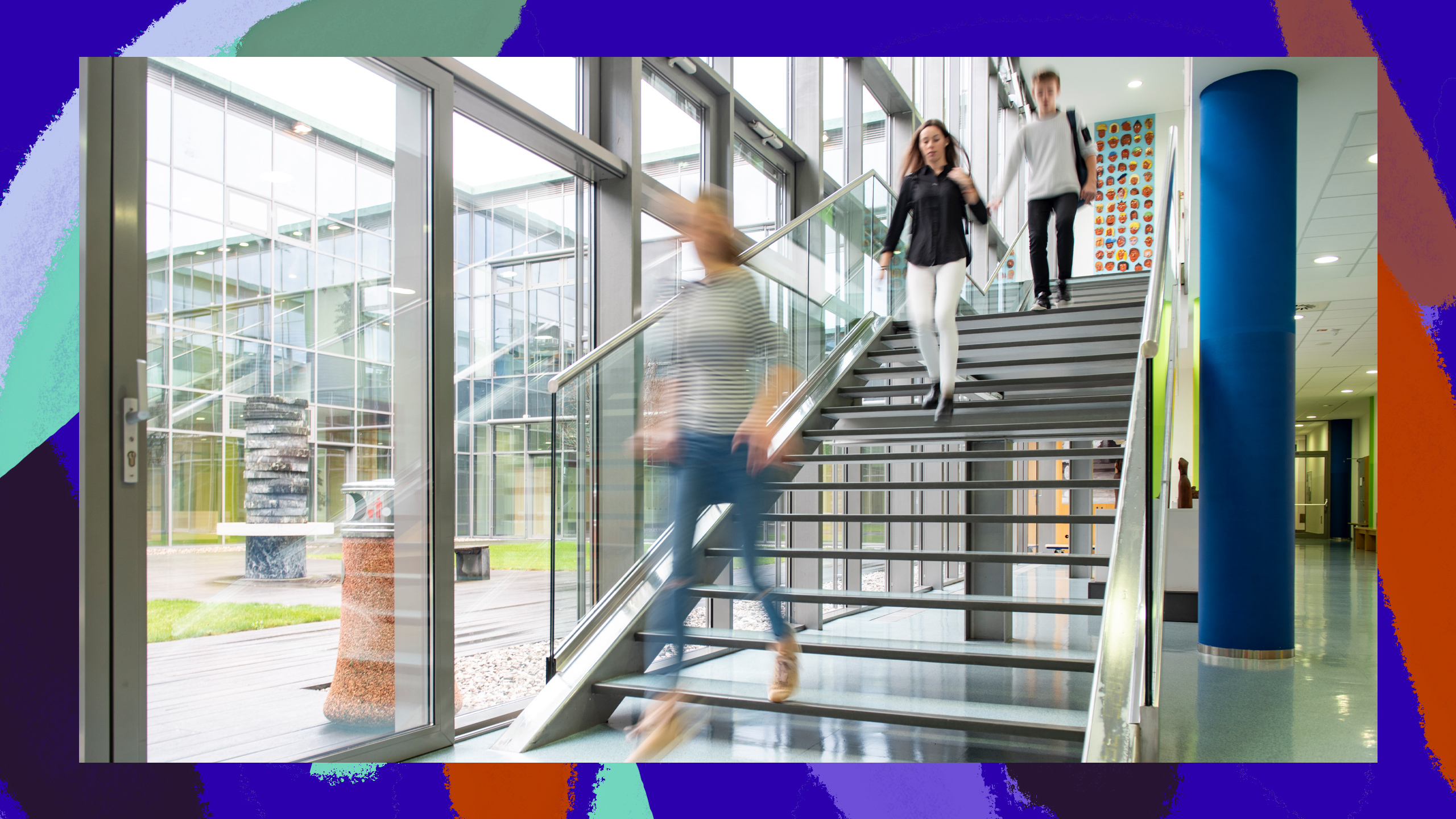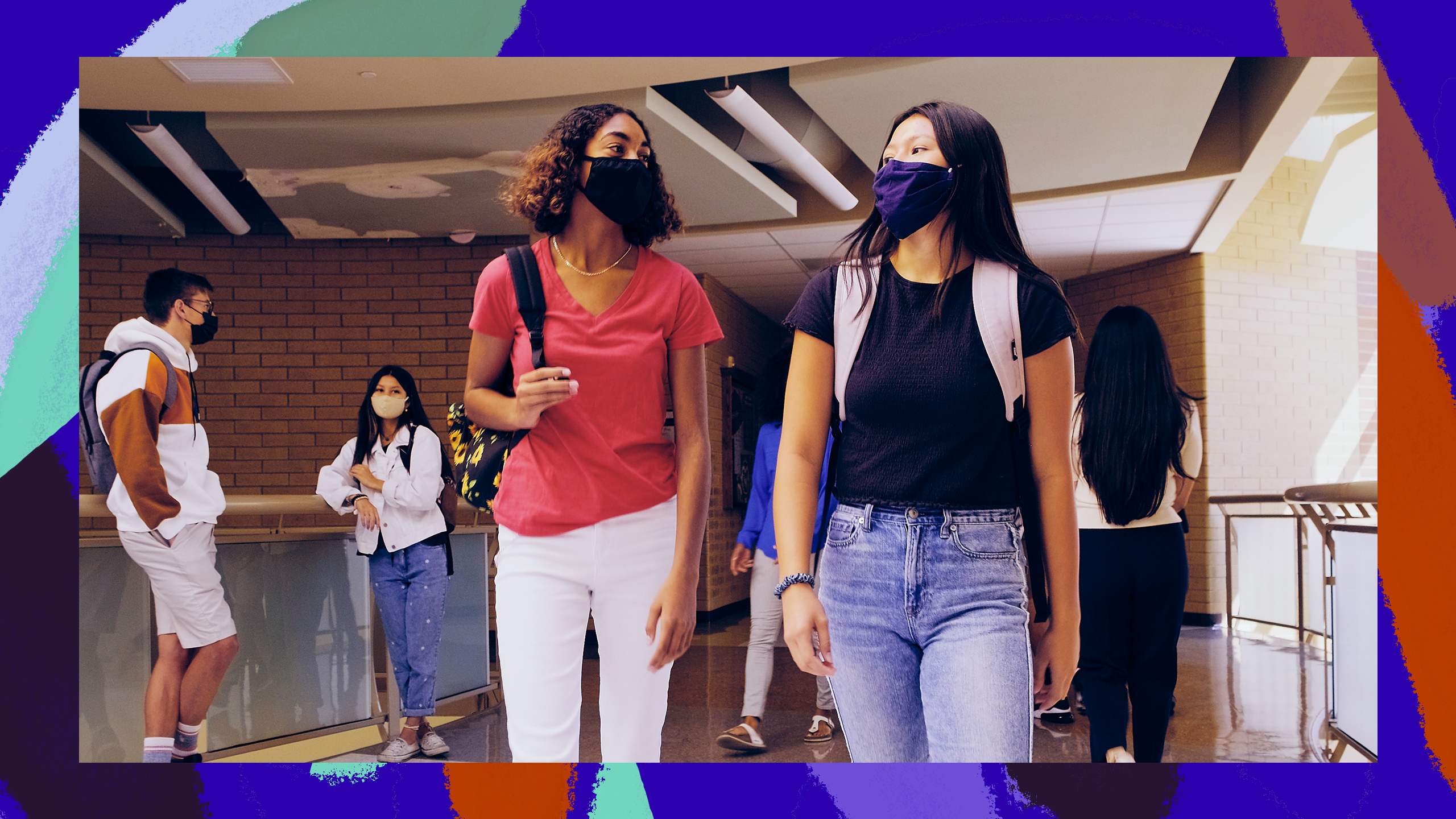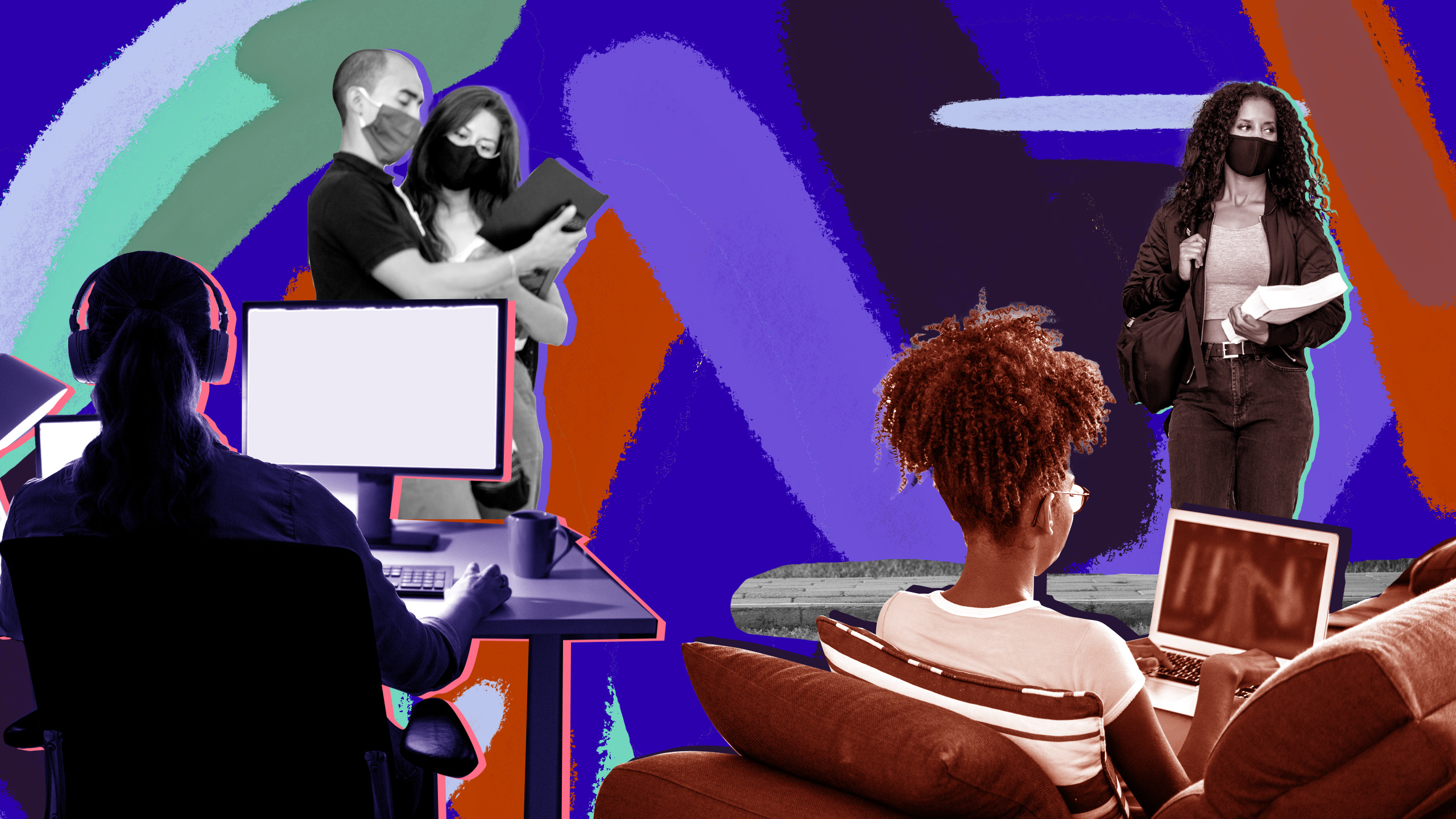10 Students and Teachers on How They Feel About Back to School in a Pandemic
It'll be one for the books, that's for sure

As the COVID-19 pandemic continues, people across the country are getting ready to head back to school. But while a new school year often feels like a hit of the refresh button, burgeoning with a sense of renewal (not to mention some fun back-to-school shopping!), for many students and teachers, this year the fall and all its promises of freshly sharpened pencils, new books and falling leaves feels less exciting than most years before. While each province is opting for slightly different safety measures, across most of Canada one thing remains universal: classes will be back in session, whether IRL, online or a hybrid of both. How individual people adapt to this—and more importantly, feel about going back to school amidst a global pandemic—is up for debate, and differs greatly.
Here’s how some students, teachers, professors and moms are feeling and preparing as September approaches and the textbooks beckon.
Jasmine Fraser, grade 10 high-school student, Regina
“I’m so scared, I’m terrified. How will I even focus on class? I’ve seen those photos of students in school hallways, where it’s packed. You really can’t distance in a high school, you know? I’ve asked my parents about staying home, but they both work, and I understand why it would be easier for me to go back to school, but it also just doesn’t make sense to me. I don’t want to get sick, I don’t want them or my little sisters to get sick, or my friends when they go back. But I am hoping things will be better by the fall, and there won’t be a second wave, and maybe we’ll all be fine. I don’t know if that’s ridiculous…I’m trying to be optimistic.”
Karen Smith, daycare teacher, Montreal
“The thing I’m most afraid of is that children don’t know how to social distance. That’s just a fact. I take care of very young children, [and] they don’t really understand what’s happening. It makes me feel like the government is hoping for a second wave. The well-being of children is being neglected. I sympathize with parents going to work, but children need to be safe, we need to be safe. How is the transition between school and childcare supposed to happen? I’m still unclear on how thorough [hand] cleaning will happen? There has to be constant sanitizing and that’s almost impossible with kids running around. Many of the kids haven’t seen each other in months, they’ll be excited, they’ll want to be together and touch. The government should have taken their time with the reopening. All of this feels rushed and dangerous.”
“It makes me feel like the government is hoping for a second wave”
Nancy Turner, director of teaching and learning enhancement at University of Saskatchewan, Saskatoon
“For our university, most of our learning is going to be remote, which I’ve helped us transition to. I’ve taught online for over a decade, and I think deep, meaningful learning is absolutely possible online. It is different and we don’t all have the skills and understanding of how to navigate that. It has a lot of us thinking about what this will look like, how engagement will change, how to get students excited, so the role of an instructor shifts considerably. A really positive thing is that students can go at their own pace and really engage with ideas. Meanwhile, an instructor’s role shifts from a presenter to a facilitator.
The biggest thing for me is ensuring that we help students connect with faculty and each other. Working and learning remotely can really be isolating. And thinking carefully about how we ensure people don’t feel that they’re alone, and that they’re part of a broader community is crucial—for students, for faculty [and] researchers.
But I really feel excited about this transition, about the opportunities that this opens up for learning and teaching, for faculty and students to connect in different ways, and to expand our practices. My colleagues have put a huge amount of effort into preparing for our students this fall and have invested so much time and energy. So I’m nervous as well. Of course there’s going to be hiccups along the way, and we’re going to have to be ready to respond to that. But we are all focused on how we can give students this great learning experience in an uncertain time.”

Grace Dupasquier, fourth year Capilano University student, North Vancouver
“The majority of my classes will be online, and this is going to be a major adjustment for me in terms of how I learn. I don’t learn as well in an online environment, so I am concerned that my grades will be impacted by this experience. I [also] thrive off of in-class discussion, which can’t really be replicated in an online setting, even with video-conferencing. I’m also going to have to get used to doing my coursework from home. Like many other students, I don’t always have access to a quiet space in my house, free from distractions; finding time and space to attend an online class in a bustling household isn’t easy.
I know many students are anticipating a lonelier experience this term, and I’m going to miss the opportunity to see many of my friends face-to-face. I’m also anticipating running into more financial challenges due to the effect the pandemic has had on my financial stability. This is not going to be an easy year. I sincerely hope universities are taking the impact that COVID-19 has had on the well-being of students into account. I’m hopeful that my instructors and professors will be understanding of the impact that online learning is having on student success, but that’s not guaranteed. While some instructors and professors have been helpful, there are many who seem to think students aren’t facing any additional challenges due to the pandemic.”
Anchana Rao, special education teacher, Toronto*
“I’ve been a special education teacher for 15 years, so my job and my students who have special needs are very close to my heart. I focus on independent living for my kids, which means teaching them life skills that will sustain them in life beyond school, rather than academic-based skills, which not everyone can teach.
Although most of my students’ parents said they will be coming to class with masks on, the problem is that most are not taking their kids outside right now, which means they aren’t practising mask-wearing. Additionally, my students are highly sensitive. I have two non-verbal students, one of whom refuses to wear his mask. Mask-wearing has been mandated at our school, am I supposed to refuse a special needs student entering my classroom because he will not or cannot wear a mask? It will be difficult to help them simply understand the importance, because for them, communication is difficult.
There’s no one size fits all. Another mom said she’s not sending her child back because he touches his face all the time, he doesn’t understand the concept of not touching. For him, I can send at-home worksheets, because he is able to work that way. But otherwise, my kids cannot sit for even 10 or 15 minutes in one place on a regular day. So how can we expect them to sit in a synchronous learning fashion in front of a laptop at home? No way.
I also have a health condition that has led to immunity issues. So while we have been told by our board that we can be accommodated for health reasons, I haven’t decided what my own plan is. There are a lot of risks; I will have to come in close proximity to my student to simply put a mask on him or her. And flu season is coming. How can I put my TAs in the line of fire? It’s unfair. I think we could have a combination of home visits and online learning, or outdoor learning while the weather remains warm. But I can’t think of a 100% fix. I’ve told parents I can’t make any guarantees for their children’s safety. As a mom, I will never be able to forgive myself if any of my special needs students falls sick on my watch.”

Michelle Dittmer, entrepreneur and mom, Toronto
“Right now, I am not concerned about my children contracting COVID-19. What I am concerned about is their experience in school and daycare. I want my daughter—who would be entering into junior kindergarten—to love school, but given the restrictions, I feel that the experience [won’t] give her that lifelong love for school. Kindergarten is about learning to play well with others, to share, to take turns, to be social, to explore and to build confidence—many of those things will not be possible given the Ministry and Board guidelines. On top of the other restrictions, teachers will be under great stress to keep the kids and themselves safe, which will impact their ability to teach the way that they all want to.
We have decided to keep our daughters home from school this year. Each family is in a different situation and, for us, given the age and stage of our kids, their personalities, our financial and working situations and our community, this is the right decision. Instead, we are building a small pod of equally COVID-cautious families who will all take turns watching the kids and allowing them to play and interact without restriction. This is only possible because I am an entrepreneur that has the flexibility to manage my own schedule. It is a huge challenge to have to re-imagine how my business will operate while I care for my kids. I will be hiring out many of the tasks that I have traditionally done, which will impact my own income, but allow the business to continue to operate and for me to care for my children’s well-being. As frustrating as that is, I have to remind myself that being there for my kids when they need me is, in part, why I wanted to become an entrepreneur—I just never realized it would be 24/7 for months on end.”
Priyanka Sharma, high-school math teacher, Vancouver*
“The best part of my job is getting to know my students, but the online platform we’re partially switching to doesn’t allow for that to happen in the same way. The way we interact with our students and how our students interact with each other will be drastically different, so it does change the dynamic of the classroom to a very structured one. Given the situation, all extra-curricular activities will likely be cancelled, which is absolutely necessary. However, clubs and sports have an important place in schools because they give students a sense of belonging. I think the idea of community will be different because we physically won’t be able to see each other as we normally do, so we’ll have to build that sense of community online.
Since I teach high-school students, my hope is that they will understand the seriousness of the situation and adhere to all the safety precautions. However, I’m still wary because while students are organized into cohorts, we have no control once they leave the classroom. They’ll likely see friends who are in different cohorts, which increases the likelihood of COVID-19 transmission if there is a positive case. It almost seems a certainty that there will be someone in the school who will contract COVID-19—it’s just a matter of when and how well we react to controlling the spread. That, in itself, is a daunting thought going into the new school year.
“It almost seems a certainty that there will be someone in the school who will contract COVID-19—it’s just a matter of when and how well we react to controlling the spread”
I live with my parents, who are older, so they are at greater risk for the coronavirus. Despite the precautions in place, I will constantly be wary of bringing home the virus. It will require me to be incredibly vigilant at school, which will likely take a mental toll. Having to balance the mental health aspect of it and still be a good teacher will be challenging.”
Cassandra Yanga, prospective first-year university student, Mississauga
“Taking a gap year was first introduced to me in November by my dad. I was preparing to apply to universities but found myself conflicted between pursuing a health-related career, which has always been my childhood dream, or becoming a teacher, which I had only considered recently at the time. The original purpose of my gap year was to decide between professions but eventually, I chose the medical path and was admitted to the University of Toronto Mississauga for their Life Sciences program. I still knew, however, that I would be responsible for funding my tuition so the idea of taking a gap year to work full-time and save up was still on my radar. I also wanted to accomplish some solo travelling to develop maturity and independence.
I hoped to intern, volunteer or work abroad but, unfortunately, the pandemic has made this almost impossible. As an alternative, I decided to do some travelling within my country to decrease the risks and still achieve my goal. The pandemic also calls for online learning in university, which I am uncomfortable with. I’m more motivated and engaged in a classroom environment with a physical teacher present so I was further motivated to defer my post-secondary studies for a year. I will also have to be more creative in the activities I can participate in due to the pandemic’s conditions of physical distancing and limited travel abroad. It will be challenging, but I hope to be stronger and more confident after my experiences.”

Sara Hassan, grade 11 high-school student, Edmonton
“Even though the class sizes have decreased, I know that the hallways are always so crowded and it’s hard to keep a distance when there are so many people trying to get through. And especially at my school, most of the kids arrive on buses, and they’re always so packed. So there’s a bigger risk of those kids bringing germs into the classroom. Wearing a mask for a few hours straight will be annoying, too, and it gets hard to breathe and even talk properly with one on. Something I’m worried about is learning from my teachers online because they’re new to this, too. I’m still deciding on what I want to do for this upcoming school year because we get to choose between online or in-school learning. I’m confused on whether I’d feel better with doing it completely online or the hybrid option of both in-school and online. I have harder classes this year, too, for Grade 11, so I’m wondering which way I’d be better off. Almost all of my friends have decided to go back to school, but with groups of 15 students, I’m not sure if I would even end up with any of them in my classes.”
“It will be challenging, but I hope to be stronger and more confident after my experiences”
Eva Chang, supply teacher, Edmonton*
“I think I will continue supplying, but I won’t be *too* eager to take shifts just yet. I’d like to see what extra information gets released as the school year starts because with the pandemic, I feel like things can change so quickly and even the information we have now might change. Measures might change, the severity might change. If I do go back, I’m concerned about continuity in terms of maintaining safety practices, like hand hygiene and wearing face masks. Students are different and have different needs, so I feel uncertain about how that will be maintained throughout the day. A major concern for me is that I live with my parents, who are in their 60s. So if I get sick, what do I do? What safeguards are in place? I have so many questions and there aren’t a lot of answers. It has me thinking of looking for other work because I don’t exactly know how reliable or safe supplying might be as this continues.”
Interviews have been edited and condensed for clarity. Some names have been changed for privacy.









